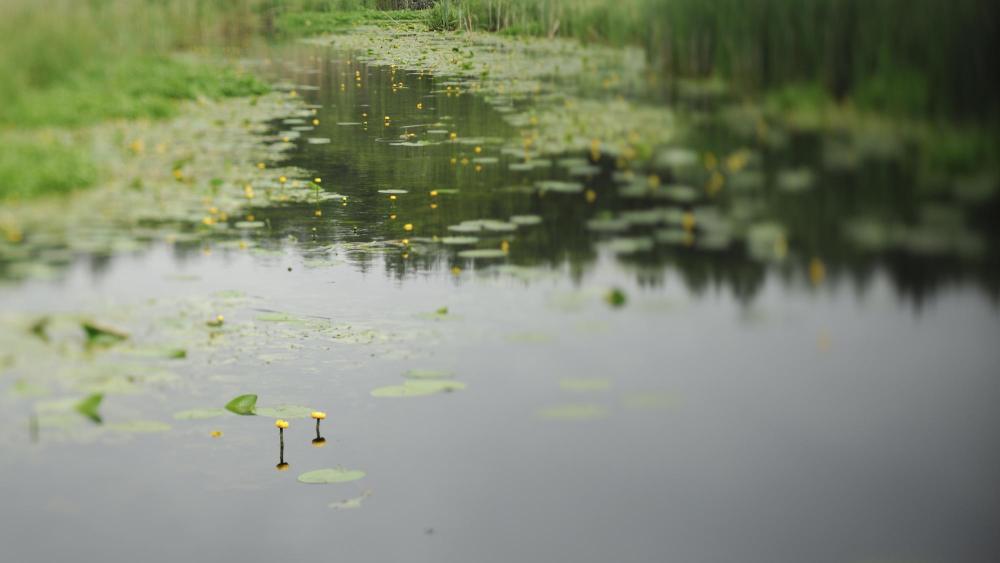
© Solvin Zankl
Freshwater systems host a fascinating diversity of life und provide important ecosystem services to our societies. But rivers, lakes, wetlands and small water bodies are also among the ecosytems most affected by human-induced environmental changes such as global warming, urbanisation, regulation, pollution and eutrophication. Better protecting und sustainably using them requires evidence-based knowledge on the dynamics and functioning of these systems and aquatic life.
“Research for the future of our freshwaters” is therefore our mission. We seek to improve the mechanistic and quantitative understanding of the fundamental processes that shape our freshwater ecosystems and of how they are embedded in a terrestrial and societal context. We investigate the ecological and evolutionary dynamics that aquatic organisms undergo, and the drivers and implications of changes in biodiversity. We develop holistic insights in ecosystem services provided by freshwaters, ranging from water security and natural flood protection to fisheries and implications for human health. The insights gained from our research help to better predict how these systems respond to global change and what mechanisms increase their resilience. This enables us to develop ecological sound concepts to manage, conserve and restore freshwater resources and ecosystems more sustainably.
Diverse teams
From the ecosystems we study, we know that diversity improves their long-term development and resilience. Research communities comprising people of diverse backgrounds and perspectives stimulate innovation and productivity. That is why we are committed to creating a welcoming, diverse and inclusive atmosphere that enables researchers and other staff to work together constructively and without conflict, regardless of their background or identity. For us, this includes an organisational culture characterised by mutual respect and support for all.
Integrated research
Key to our research philosophy is the combination of excellence in research, societal relevance and impact orientation, integrating internationally competitive basic research with applied research on ecosystem services, and on the sustainable use and conservation of inland waters. We deepen our disciplinary competences while also promoting interdisciplinary cooperation within the institute and with external partners and networks. We use state-of-the-art methodologies and develop them further, thus contributing to innovation in research. Our integrative and dynamic approach allows us to respond to research questions and impulses from science and society as well as to drive national, European and global research developments.
For an overview of our structure, please click here >
And our programme areas are presented here >
Excellent infrastructure
IGB maintains unique research platforms, including large-scale research facilities such as the IGB LakeLab in Lake Stechlin or the River Lab in the Tagliamento River. Our filed research is also done at Lake Arendsee, where we study the biogeochemical coupling between sediment and water. In an experimental field in Westhavelland we investigate the effects of artificial lighting on coupled aquatic-terrestrial ecosystems. With a 3D telemetry facility in Lake Döllnsee we can record fish movement patterns under real field conditions. And we study the water balance of the landscape with an ecohydrological field observatory near Berlin. At three monitoring stations we observe water bodies over long periods of time to recognise and understand long-term developments. The infrastructure at IGB also includes invertebrates and fish facilities as well as modern biogeochemistry, stable isotope, microbial and molecular laboratories.
In addition, we use and advance a wide range of models and methods such as remote sensing, 3D print-assisted sampling, sensor technology and AI-assisted image analysis. We pool all this expertise and infrastructure in competence and technology platforms (CTP). As with our extensive data bases, these CTP are integrated into international programmes, provide support to users from research and practice and thus form a nucleus for cooperation.
You can find an overview of all our competence and technology platforms here >
Dedicated training
IGB is a diverse and inspiring place to conduct research and teaching. We train future generations of freshwater scientists that are capable of developing and implementing solutions for a more sustainable management of the environment. Thanks to our joint professorships, we are closely linked to universities in Berlin and Brandenburg, and are actively involved in teaching. Early career researchers enjoy dedicated training through the IGB doctoral programme and in graduate research schools. We educate professionals for academia as well as for authorities, associations and the private sector. In our IGB Academy and other workshops, we train societal stakeholders on water management issues.
Open knowledge exchange
Excellent science is key to understand basic principles and processes, but also crucial to address current societal challenges such as how to mitigate and adapt to climate change, how to protect aquatic biodiversity or how to use waters and floodplains sustainably. Our research findings contribute to evidence-based measures to be taken on the conservation, restoration and sustainable management of inland waters. In open exchange with our partners from science, politics, authorities, associations, practice and civil society, we develop concepts and options for action in response to pressing environmental issues and support decision-making processes at regional, national and international level.
You can find information, materials, experts and further background on the topics we cover here >

